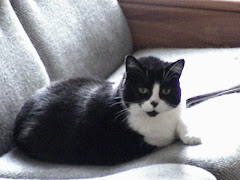I'm glad to learn about Google Docs. I can see how knowledge about this type of application could become necessary in the workplace in the not-so-distant future. For awhile now, many jobs have required you to know the basics of software such as Word or Excel. The future may be that you'll also have to know how to edit and share these formats online.
This would be an extra challenge for those who are still getting their bearings on such basics as email. Technological change has come so quickly. You just acquire tentative proficiency with one new item, when something even more innovative pops up and gains favor. Many of our patrons are struggling with computer basics. They probably won't have to worry about something like Google Docs this year, but in 4 or 5 years, if they are looking for a job, or submitting a document to a government agency, how much more will they be expected to know?
I must say, though, that Google Docs appears to be very easy to use. It's pretty remarkable, really -- the folks at Google excel at avoiding unnecessary complication in developing their applications. When I first opened up Google Docs, the familiar Word interface put me at ease. So if you know Word, creating a document isn't too scary. Sharing and publishing require familiarity with the Internet, of course, and some online reading to figure out just how it all works.
I typed this entry in Google Docs, as well as a cheat sheet for Word.

